
About mhPAD: going beyond the research
The purpose of this project is to shed light on one of the least prioritized yet very important aspects of health and wellness - mental health. Analyzing Mental Health in the Philippines: Perception, Access, and Delivery (mhPAD) is a nationwide research project that gathers mental health perceptions of the general populace, maps available mental health systems, and counts the costs of access to said systems by service users with the ultimate goal of influencing policies related to this aspect of health. In particular, the study analyzes how mental health is perceived by the general population and selected stakeholders, available mental health facilities and programs, the workforce, how and when services are accessed and utilized, and the cost it takes to access and utilize available mental health services. The information generated will contribute to the development of a rational and unified response to promote mental health and address mental health problems. The research is carried out under the Center for Research and Innovation of the Ateneo School of Medicine and Public Health. It is funded by the Department of Health (DOH) through the Advancing Health through Evidence-Assisted Decisions with Health Policy and Systems Research (AHEAD-HPSR) Program, jointly managed by the Philippine Council for Health Research and Development (PCHRD).
The significance of mental health
Mental, neurological, and substance use disorders account for a significant and growing proportion of the global burden of disease. It is projected that by 2030, mental health problems, particularly depression, will be among the three leading causes of morbidity and mortality. The UN sustainable development goals (SDGs) aim to reduce by one third premature mortality from non-communicable diseases through prevention and treatment and promote mental health and well-being by 2030. Mental health is one of the priorities in the Philippine Health Agenda 2016-2022.
Mental health is fundamental to our overall health. It is a public good and access to mental health services is a basic right. The results of this study will provide a better understanding of how mental health services are perceived, accessed and delivered in the community. This will provide input to efforts on increasing mental health literacy and quality service.
The Mental Health Act (RA 11036) calls for an urgent need to generate data from the community-level that shall inform critical bodies like the Philippine Council for Mental Health, the Department of Health, local government units (LGUs), academic institutions and workplaces to develop policies that are evidence-based and appropriate; services that are available, accessible, affordable, and acceptable; and programs and activities that relevant and contextualized to the community level.

Scope and endpoints
The study encompasses 10 provinces across the country, namely Pangasinan, Pampanga, Marinduque, Albay and Marikina City in Luzon; Capiz, Northern Samar, Misamis Oriental in Visayas; and Zamboanga del Norte and Surigao del Norte in Mindanao. The actual conduct of research in the community also provides an opportunity to develop partnerships and to engage local government units (LGUs) and members of the community in conversations about mental health, an area of felt need but not addressed because of lack of understanding. It is a two-way conversation; as we listen to the voices from the community, we share knowledge on mental health.
As previously mentioned, this study will generate data from the community level that shall inform, aside from the LGUs, critical bodies like the Philippine Council for Mental Health (PCMH), the DOH, academic institutions and workplaces to develop policies that are evidence-based and appropriate; services that are available, accessible, affordable, and acceptable; and programs that are relevant and contextualized to the setting.
The study’s endpoints include:
- Research: understanding of mental health perception, access and delivery particularly at the provincial, and municipal levels, in order to give recommendations on how to improve the mental health system in the Philippine context.
- Capacity development (People): the conduct of workshops and training for the research team as well as developing young researchers.
- Dissemination: presentation in international and local conferences and publication.
- Policy support: policy briefs, evidence summaries, and policy input for the mental health program.
Capacity development: on the field and within the team
For each of the ten sites, Exit Conferences have been scheduled for direct communication of data to stakeholders from each respective region. Preliminary data is shown from the study not just for the use of LGUs and concerned facilities, but also for the purposes of clarification, so as to ensure that data faithfully represents the situation on the ground.
Before these conferences, the project asks stakeholders in advance for their locale’s needs with regards to mental health awareness and capacity-building. This culminated in lectures about the Implementing Rules and Regulations for the Philippine Mental Health Act (RA 11036) for Northern Samar, Pampanga and Capiz, a workshop on bullying and mental health in Marinduque, and suicide prevention workshops in Misamis Oriental and Albay.
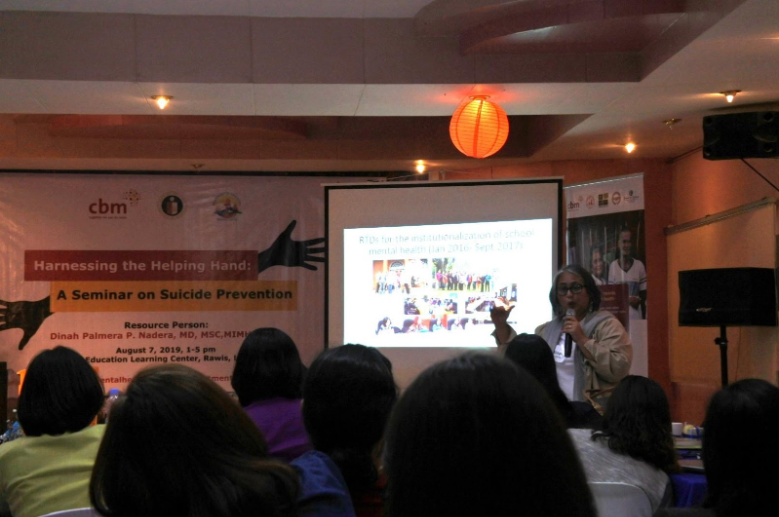
Suicide Prevention Workshops: Albay, in particular, was a partnership with CBM International in cooperation with teachers from the Department of Education. CBM is an international development organization that was previously MHPAD’s partner in Quality Rights Training.

Bullying Workshop: In Marinduque, the program requested was on bullying, held at Marinduque Midwest College for students and faculty alike. This is due to the prevalence of bullying in the region’s schools.
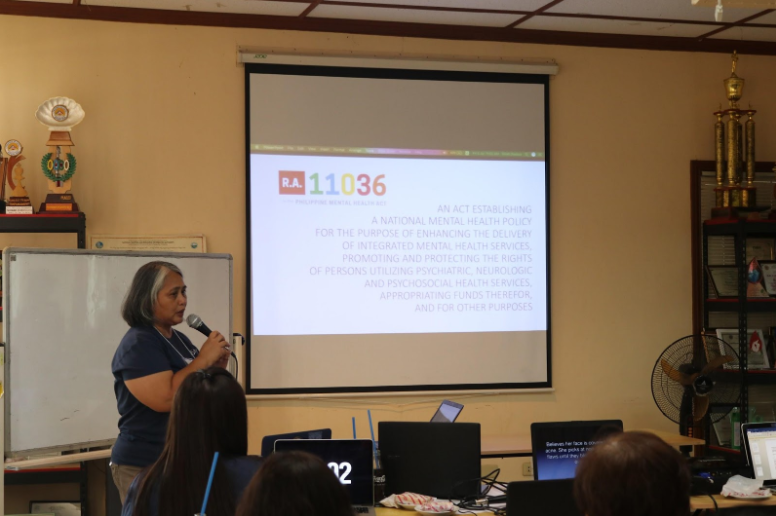
Implementing Rules and Regulations lecture for RA 11036: The requested program for Capiz was a lecture on the Philippine Mental Health Act (RA 11036), the IRR of which was recently passed at the time. The keynote speaker for this was Dr. Dinah Nadera, the project’s principal investigator. This was held at the Capiz Provincial Health Office for their staff, as well as selected stakeholders in the region.

Policy-writing workshop: A policy-writing workshop was also held in line with the goals of capacity development and the eventual creation of policy briefs. The objective of this workshop was to equip selected stakeholders and research team members with the capacity to summarize the information gleaned from the research in a manner that can be understood and utilized for the improvement of mental health. The resource speaker was former chief of DOH and former dean of ASMPH Dr. Manuel Dayrit. This was in attendance of stakeholders from various provinces (Northern Samar and Zamboanga Del Norte), as well as Health Program Officers from DOH.
Going beyond the research
One measure of a successful research is going beyond the theoretical aspects, being able to translate the research into something more meaningful and concrete. And this can be summarized into our three ABCs.
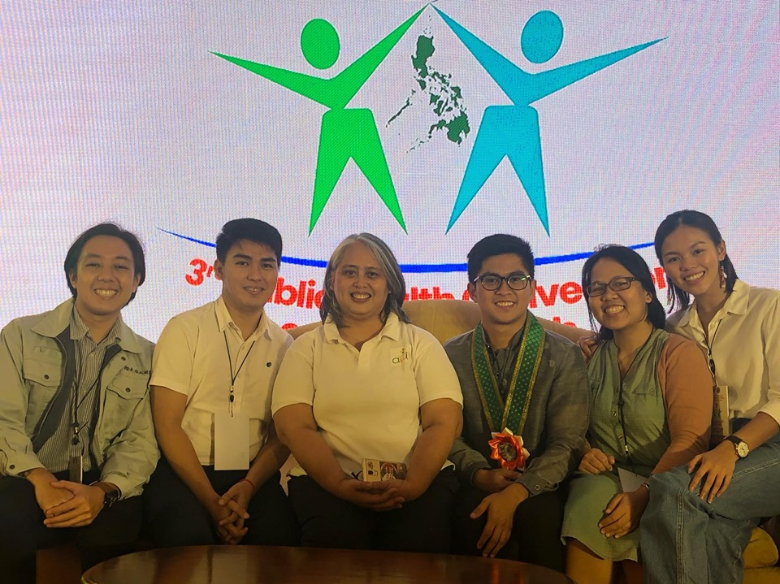
The project team during DOH’s THIRD PUBLIC HEALTH CONVENTION ON MENTAL HEALTH in celebration of World Mental Health Day, in which Dr. John Gabriel Hernandez presented a summary of initial research findings
First is our aim. One needs to have good research and aim to have a clear and relevant goal. This means that the research being made must be comprehensive and concise enough but still is bounded by one overarching goal which is the primary purpose of the project. This gives direction and clear identity to the project to the point that if and whenever things get too complex, it will still always boil down to the objectives of the research. Again, it should always start with a goal. For this project, the main aim is to characterize the overall picture of mental health in the country both in the provider and the receiver side in order to eventually influence policy making with regards to this overlooked health condition.
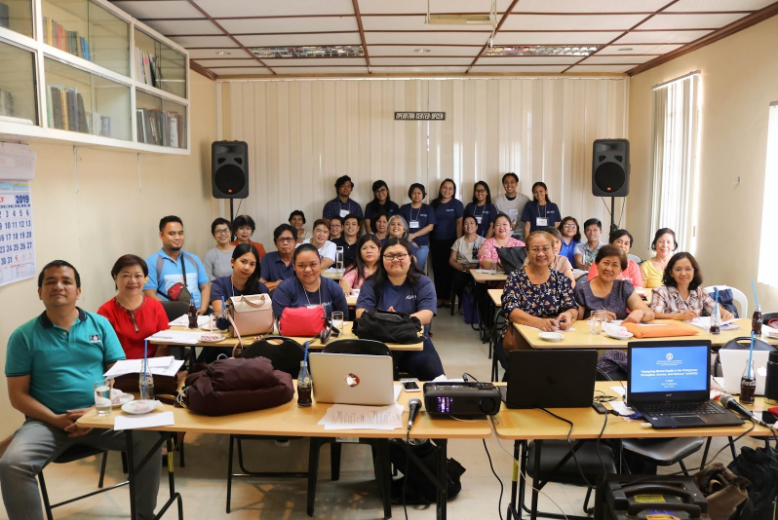
The team together with stakeholders during the Capiz Exit Conference
Second is the goal of broadening. Carrying only one perspective while doing and translating a research will only lead to bias and may limit the utility of the project. It is important to broaden one’s perspective by listening to all stakeholders, especially the target community. It is vital to listen to what the community is saying since in the end, it is them who will benefit from it. Communication should be a two-way thing. Each community should not be treated as just a source of information but a partner. By doing this, it will not only increase learning on both sides, but it will also add value to the research since the results are now rooted to the reality of the community, and are not detached from it. For this project, this is done by continuously communicating with the target communities during and after data collection. Workshops that were done such as bullying, suicide prevention and lecture in IRRs were perceived need in the community based on the stakeholders at that time and thus made a larger impact as they were personalized to each province.

Project team and stakeholders were asked to collaborate on policy notes together during the aforementioned writing workshop
Third is collaboration. Now that we have good research with a clear goal that is rooted into the needs and situation of the community, the next thing to do is collaborate. We need to tap all relevant agencies during and after the research is done. These are the national government, local government units, schools, NGOs, communities and even funding agencies. There is a need to have good communication with them in order to more effectively relay the message of the research/project. This will then be a stepping stone for the project/research to pick up and get more attention and help in terms of research translation.
For some, research is just part of their job which they use to feed their family. For others, it is their passion and their life’s work. But for most of us in the team, it is a personal journey. Not only because the topic of mental health is close to our hearts, but also because it has impacted us intellectual, emotionally and socially.
Through the whole process of brainstorming, data collection, exit conferences and paper writing, the team members learned so much about the practical aspects and intricacies not just of research writing, but that of the mental health system in the Philippines. It gave us a glimpse of how the system works, how it should work and the discrepancies between the two. It gave us the opportunity to see the situation at the grassroots level: both the mental health providers and service users, meet and interact with passionate and interesting people in the field of mental health, and somehow contribute both to the community and the municipality through this landmark mental health research.
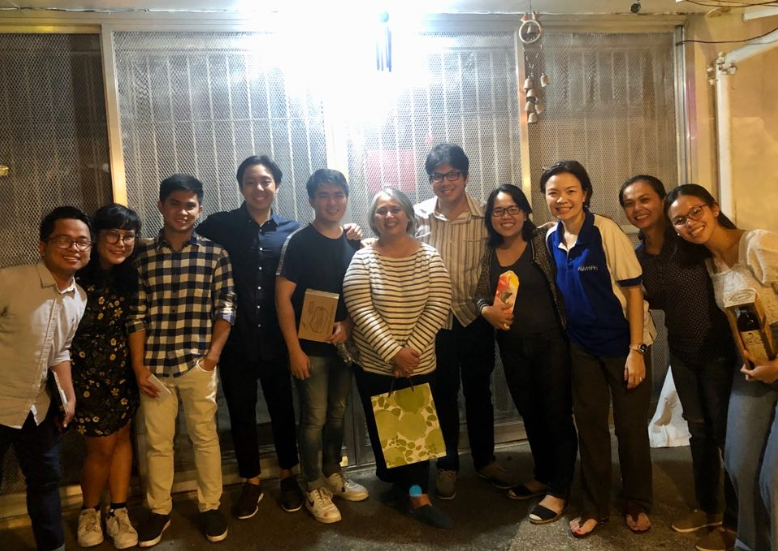
Past and present project team pose for a picture during ACRI’s 2019 Christmas Party
Not to say that it was all a good and pleasant time. We became tired and impatient; at some points, we were angry and frustrated with what we were seeing. But all these are part of the experience. Had it not been the case, we will just walk out of this project feeling the same - not gaining anything. Now, we have a broader perspective on the society especially in terms of dealing with communities, partner organizations, health providers and people with mental health conditions. It ignited our passion more to continue being mental health advocates in our own ways especially after seeing how little it is given attention in some places in our country despite it affecting a significant number of Filipinos. In the end, just like any journey, it transformed us and from now on, we will continue this bringing all that we’ve learned, felt, and experienced from this endeavor.
-
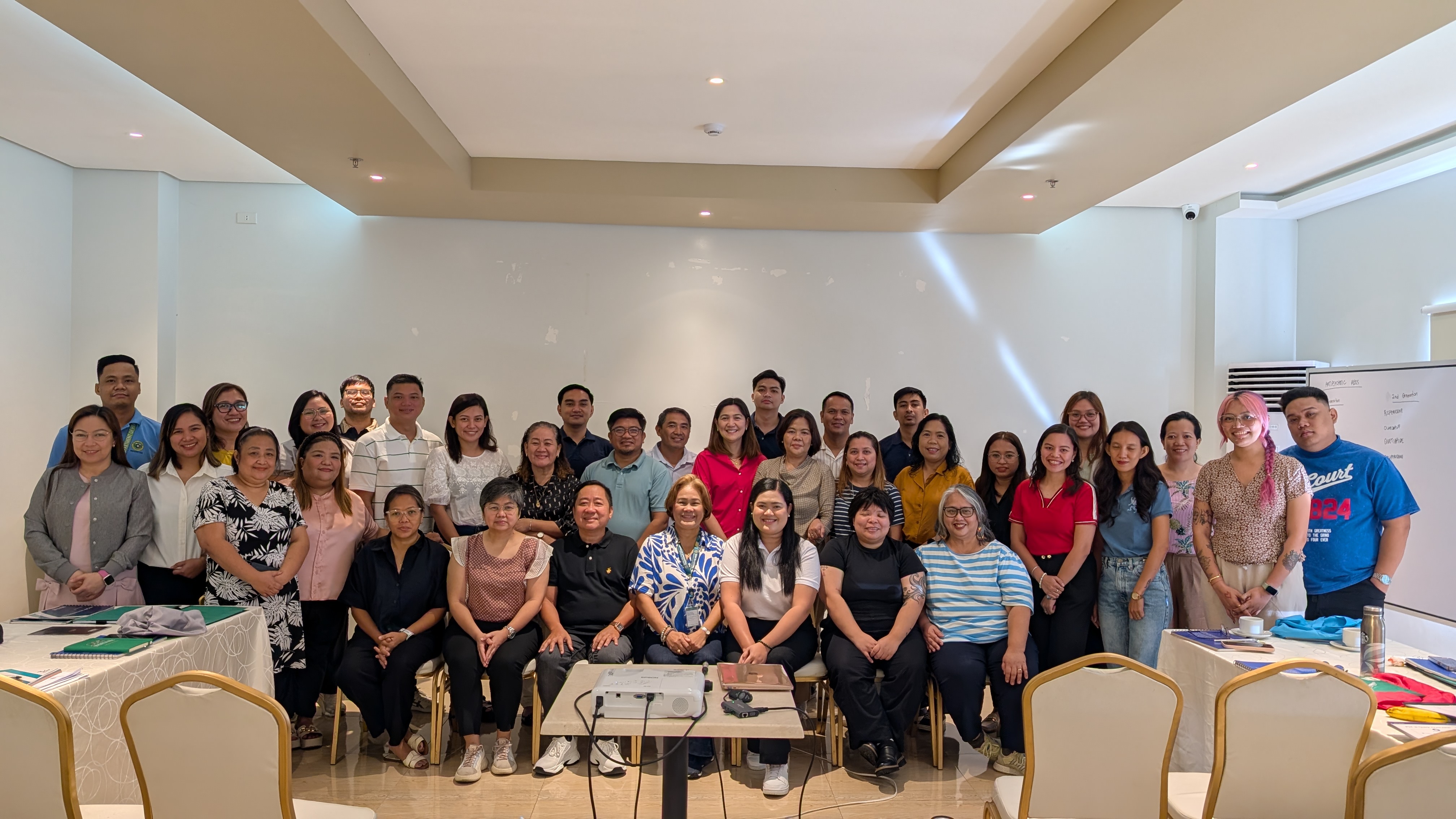
Strengthening Community Mental Health: mhGAP Training in Albay
From July 2 to 4, 2025, frontline health workers in Albay completed intensive mhGAP training under the Ka-ginhawa Project, a partnership initiative supported by the Australian Government, CBM Global Disability Inclusion, and the Balik Kalipay Center for Psychosocial Response. The three-day program equipped local providers with essential skills to assess and manage mental health conditions while strengthening referral networks across the province.
-
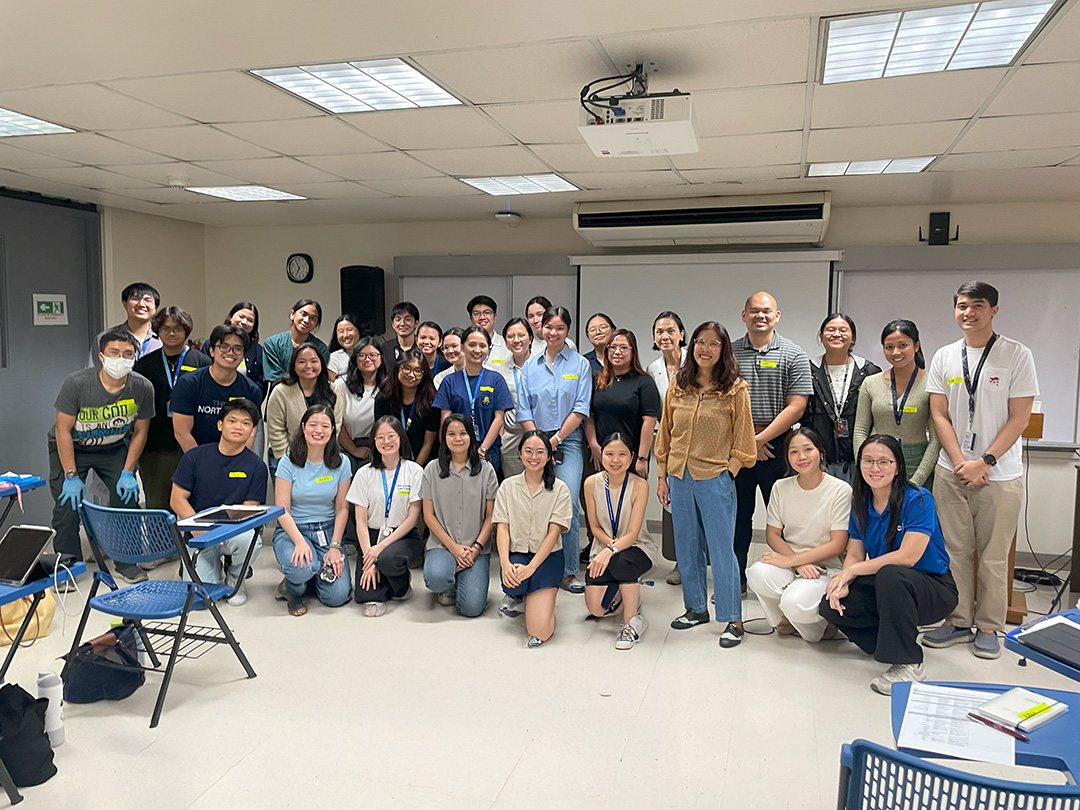
ACRI Conducts Nutrition Focused Physical Examination Training to Advance Autism Research
ACRI conducted Nutrition Focused Physical Examination Training on June 18, 2025, as part of an autism research project comparing children with ASD to their peers. Led by Dr. Maria Christina Kristin S. Reyes, the training equipped researchers and student assistants with hands-on skills to conduct NFPE with children aged 5-9. The peer practicum component built clinical team capacity to accurately administer assessments for the research protocol.
